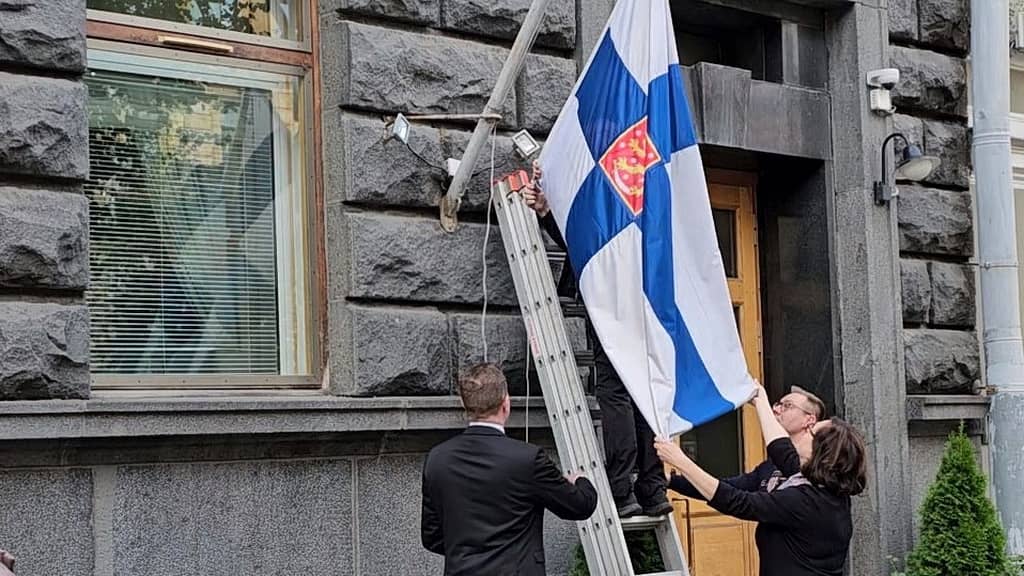The Finnish diplomatic mission shut its doors, lowered the national flag, bid farewell to St. Petersburg, and transferred all its functions to the Finnish Embassy in Moscow. This happened on October 1st, in a week when the consulate would have celebrated its 100th anniversary. While it managed to survive the Cold War, it failed to weather the recent tensions between Russia and the civilized world.
The tensions have been escalating since 2014 when Western countries, including those in the European Union, imposed sanctions on Russia over the Ukrainian issue.
In 2022, when Russia initiated the so-called «special military operation» in Ukraine, Finland declared and subsequently fulfilled its desire to join NATO. Finland condemned Russia’s invasion of Ukraine.
The final chapters of this drama unfolded in the summer and fall of 2023. In June, Finland expelled nine Russian diplomats, stating that their activities violated the Vienna Convention on Diplomatic Relations. In July, Russia’s Ministry of Foreign Affairs revoked permission for the operation of Finland’s Consulate in St. Petersburg. As of September 1st, the matters previously handled by the consulate were transferred to the embassy in Moscow, which continues to operate. On October 1, 2023, the story of Finnish diplomatic presence in Russia’s second-largest city was interrupted, or even possibly ended, for good.
Sannamaaria Vanamo, the (now) former head of the Finnish consulate in St. Petersburg, addressed the Russians through the mission’s account on Russia’s largest social network, VK. She listed a number of cultural projects realized over the past years, the opening of consulate departments in neighboring regions of Karelia and Murmansk, as well as the number of Finnish visas granted to Russians — reaching a historic high of over one million.
«Unfortunately, Russia’s military actions against Ukraine have altered the foundation of our relations, curtailed tourism, and suspended many beneficial cooperation programs between the European Union and Russia,» she commented in her farewell statement.
For Leningrad (1924-1991) and then St. Petersburg, Finland was much more than just a neighboring country. It became a friendly capitalist ally for Soviet citizens, a window to the developed capitalist world. Finnish tourists brought numerous items, such as clothing and home appliances, which residents could exchange for money, vodka, or Soviet goods. Finnish companies supplied the Soviet Union with equipment and technologies and implemented numerous construction projects.
After the collapse of the USSR, many Russian tourists flocked to Finland. Traveling to the country became an essential part of a middle-class family’s lifestyle in St. Petersburg, as many would vacation there or use Finland as a transit point to other countries.
During certain periods, various modes of transportation facilitated passenger traffic between the two countries: two daily flights between St. Petersburg and Helsinki, a ferry line, buses, minibuses, cars, and three departures of the high-speed train Allegro. On many days, there were significant traffic jams at border crossing points, making the idea of opening a discount center for luxury brands seem quite reasonable.
It’s quite understandable that the closure of the consulate was not welcomed by Russians themselves. Readers of the Fontanka website, the most popular media outlet in St. Petersburg, were very straightforward:
«I have only strong words.»
«Vladimir Vladimirovich (Putin, Russia’s President — St. Petersburg Travel Guide) not only destroyed what remained after the collapse of the Soviet Union but also disrupted the good neighborly relations between peoples that had been brotherly for centuries.»
«It’s a pity; the iron curtain is descending further and further. I’m not sure if it will ever be possible to raise it again.»
Photo credit: https://um.fi
